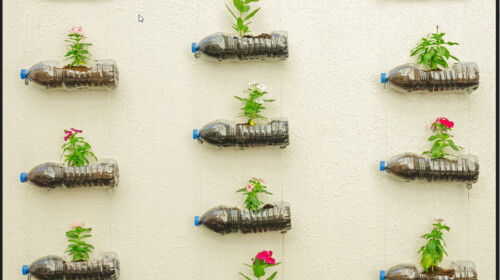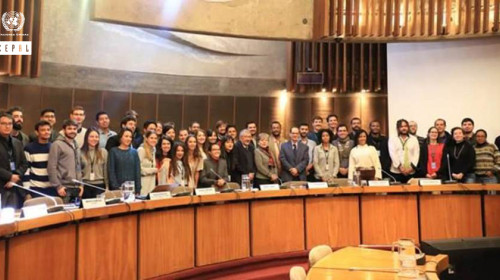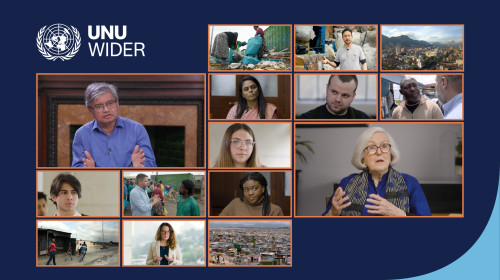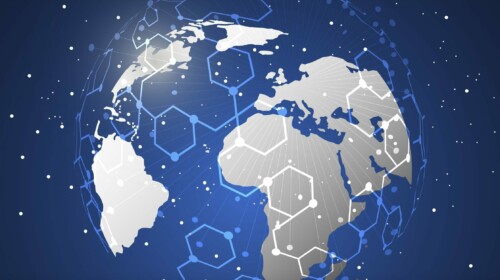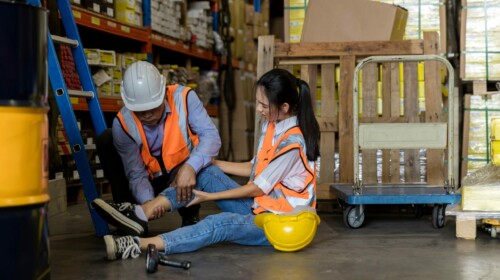We often hear about SMEs as the backbone of the global economy, providing most jobs and making up the vast majority of all companies on the planet, but suffering from particular gaps in capacity and access in order to increase their resilience and become more sustainable. While more work and analysis could always be done, and more focus brought to the particular problems of SMEs, at IOE we have been dealing with these issues for a long time and believe that it is now time for implementation and concrete policy changes at scale. The current crisis has exacerbated many existing issues and also added additional pressures for business continuity and development; as countries prepare different recovery measures, it is the perfect time to focus on SMEs with dedicated support and sustainability incentives. We know many solutions and ways of supporting SMEs but more often than not the problem is implementation, actually going ahead with evidence-based, coherent and dedicated policies, and the means to implement them in a timely and efficient manner. We hear less about the structural and persistent issues facing small businesses in some contexts and how these systemic issues have not improved much in recent decades. For example, according to the ILO, there are about 365-445 million MSMEs in emerging markets: 25-30 million are formal SMEs, 55-70 million are formal micro, and 285-345 million are informal enterprises; this illustrates the scale that we need to reach to have a long-lasting impact. Looking at it another way, formal SMEs contribute up to 40% of national income (GDP) in emerging economies and significantly more when informal SMEs are included.
In the context of responding to shocks and crises, the resilience of a company is one of the main ways we can assess its readiness to adapt and respond to external disruptions. Resilience is based on the strength of a company’s business processes, its internal and external connections and its ability to pivot. Unfortunately, small businesses are usually less resilient than large businesses yet they often face even stronger challenges during these periods. According to International Trade Center (ITC) research, 68% of the companies interviewed in sub-Saharan Africa said that environmental risks were significant for their businesses, yet just 38% of micro, small and medium-sized firms had made an investment in at least one measure to reduce exposure to environmental risks compared to 60% of large firms. Some of the elements more resilient companies had in place according to ITC, are connections to business support organizations, peers and buyers, innovation, employees with the right skills, and access to funds. Many companies adopting more sustainable business practices are reporting positive effects on their business operations and the business case for adopting some of these innovative practices is growing stronger. Among the potential benefits of measures such as increasing energy efficiency, switching to renewable energy, reducing and recycling waste are: increased resilience, cost reduction and higher productivity, compliance with climate regulations, access to markets, and eligibility for green financing. However, it is important to note that these benefits depend strongly on local context, policies and business environments. Solutions need to be catered to national contexts and evidence-based; collaboration between government and private sector, with the coordination of employer and business organisations, is crucial for effective implementation.
In Ethiopia, SMEs and business owners have to contend with structural issues on a daily basis, regular and affordable access to electricity is not a given, getting funding and easily establishing an affordable credit line sounds like a dream, and finding employees with the skills you wish for can be quite the challenge. Even if you surmount these challenges and successfully establish business operations, an unexpected event like the Covid pandemic could turn your hard-earned effort upside down with little hope for assistance and support from the public sector. All this while facing other adverse factors like competition from informal enterprises who don’t go through the added effort of following regulations and through the bureaucracy needed to establish a formal enterprise. This is how Dawit Moges, President of the Ethiopian Employers’ Federation, described some of the challenges facing small businesses in his home country during a recent IOE side-event at the recent UN ECOSOC Partnership Forum.
This is why IOE believes much more needs to be done to improve the environment in which SMEs operate in every country but particularly in less industrialised regions where business frameworks sometimes suffer from structural and systemic issues that put a brake on growth and development. IOE is in the middle of an ambitious project with 26 national employers’ organisations, from the list of least developed countries (LDCs), to analyse the local business environment in collaboration with stakeholders on the ground and provide a concise snapshot of what needs to be done to improve the conditions of doing business. This analysis can then be used as a roadmap and a policy tool, and local business development services can be boosted through government and employers’ organisation collaboration. This work would also have been showcased and promoted at the LDC5 Conference in Doha, Qatar, which is a great opportunity to discuss some of these pressing issues but it was unfortunately postponed. IOE also hosted one of the Spotlight Sessions of the UN ECOSOC Partnership Forum which was focused on SMEs and their particular challenges. You can see stories of entrepreneurs and their experiences and struggles across different countries in the Business Heroes series of videos IOE prepared to promote the plight of small business owners worldwide.

Figure 1 Business development phases (ILO, 2020)
ILO analysis on entrepreneurship and the system conditions for developing enterprises can provide some useful insights. According to research, proper access to financing as well as business development services provided over 1-2 years are crucial for enabling ‘entrepreneurs to increase income, expand their enterprises, as well as create jobs, beyond what would have been possible with finance alone; and at the same time, allowed financial institutions to realize higher client retention as well as a larger, more skilled client base’. It seems it is easy to overlook the complexity and difficulty of launching and running a new business without appropriate support. A good question to ask oneself, if I were to launch a business tomorrow what would it be? How many of us have a successful business idea just waiting to be implemented, and how many are certain it would work and be successful in the long term? Now hold onto that and ask yourself if that business idea is sustainable and perfectly emission-free? In most countries of the world, it is currently more difficult to operate a sustainable business than a conventional one. Furthermore, the SDGs are a complex and exhaustive agenda with many different elements and components as well as objectives that can sometimes be in partial conflict. For example, I can be an SME owner in the food sector and therefore directly contribute to Goal 2 by distributing quality food to a local population, but at the same time I am using fossil fuel vehicles for this distribution and my electricity comes from the national grid which is powered by a large share of coal power plants. In this scenario, I’m contributing to one SDG already but I am also preventing SDG7 from being reached due to the fossil fuel sources of my energy consumption. Now, I could potentially try and replace my vehicles with electric ones and I could try finding alternative sources of electricity but if my business is in a country that lacks electric charging stations, or where the electricity grid does not offer green energy, some of my sustainability options are limited.
We have to look at the whole system and act on some of the framework conditions which are impeding action. SMEs are usually in dynamic and competitive markets and they operate on a business logic. Unless there are incentives for alternatives and those alternatives are easy to access most business owners default to the easiest and cheapest option. And most of the easiest and cheapest options are not sustainable in most places of the world today. We have to have a more detailed system way and look at, on the one hand, the entrepreneurial ecosystem (Figure 2) while also looking at the industrial system and access to sustainable products and services in any given market.
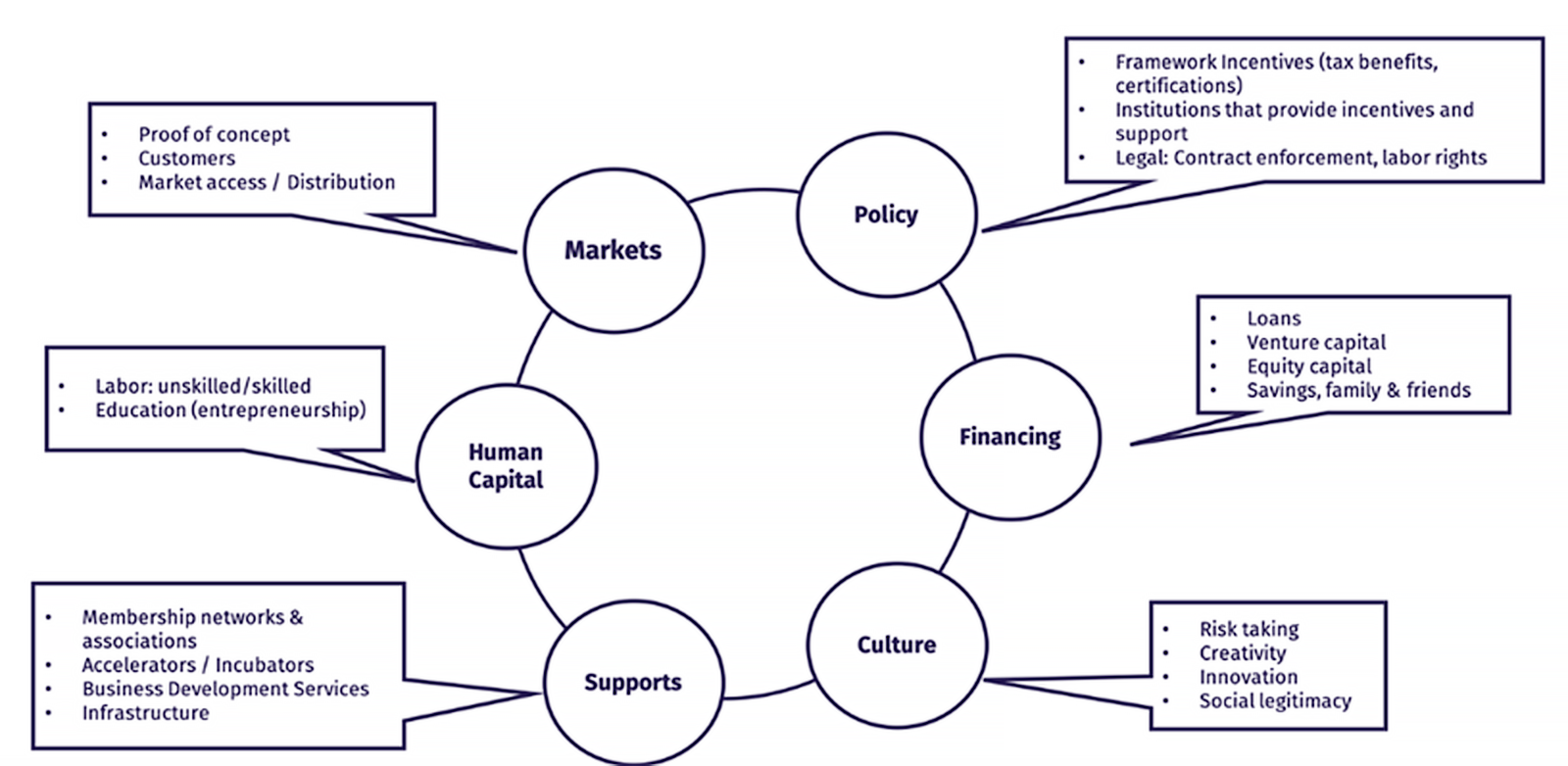
Figure 2 Entrepreneurial ecosystem (ILO, 2020)
The SDGs cover many aspects and most businesses of all sizes already have a positive impact on some of the SDGs. However, they also have a negative or neutral impact on others. So business owners need to look at the areas they’ve been ignoring or areas where they could make a difference without significant drawbacks. Cutting energy costs with efficiency measures, improving diversity at the workplace, reducing material costs with more efficient processes or simply cutting out some parts which are not necessary could all be relatively quickly implemented and would have immediate benefits. Furthermore, the credit gap results from both demand and supply-side problems. Many SMEs are reluctant to seek or cannot access credit due to the reams of financial documentation and collateral requirements for obtaining a loan; high costs and interest rates; and multi-week decision timeframes. Digitizing SME finance and making use of transactional and alternative data offer an opportunity for addressing both sides of this problem according to World Bank analysis.
Novel approaches and methods like the circular economy offer promising paths to creating economic growth and value while also ensuring sustainability objectives are met and emissions reduced. However, they require the whole system to develop and adapt and this takes time. Other approaches for developing markets and optimizing their performance could also have promising impacts, like the efforts of ILO’s Lab and the Market Systems Development approach.
Most businesses are still in a conventional system with conventional processes, methods and services and are trying to survive a harsh competitive environment which can sometimes be exacerbated by unexpected shocks. As we have seen with Covid, most businesses don’t respond very well to strong shocks that require them to quickly adapt. They require stability, clarity and support in implementing gradual changes.
Creating real change for SMEs and scaling up sustainability efforts and progress across the world for small and medium companies requires dedicated, persistent and systemic efforts which need to be done in close collaboration between private and public sectors. There are many initiatives and projects already out there, Deloitte has collected some inspiring stories of SMEs innovating for example while the International Trade Center (ITC) also collects inspiring experiences from SMEs and their challenges. Employers’ and business membership organisations can be key partners in this process, acting as the bridge to some of these less exposed companies that require support and also as a gateway to the government, to create practical policy changes, drive incentives where they are needed and provide feedback from the ground. So on the one hand the information and knowledge available to entrepreneurs, business owners and consumers relating to sustainability opportunities need to be improved, but on the other hand the business environment, local policies, overly restrictive regulations and bureaucracy, dedicated lines of support and targeted incentives all need to be changed in order to spur more sustainable SMEs and create a greener business environment. IOE is working on many of these issues with its members and strives to promote the importance of employers and business organisations in the development of local business communities.
*IOE Adviser Robert Marinkovic deals with climate change policy and issues related to the implementation of the 2030 agenda, the Sustainable Development Goals, the green economy and just transition.A political science BA graduate from the University of Geneva (Switzerland) and with an MSc in Environmental Science also from the University of Geneva Robert started working for the City of Geneva in its Agenda 21 Office, followed with an internship at UN Environment before settling at the International Labour Organization in Geneva for some time with the RELMEETINGS department. Robert joined IOE in 2018 and is currently coordinating its work on sustainability issues in collaboration with other organisations, partners, and national employers’ organisations who are members of IOE. Robert also coordinates the Sustainable Development Policy Working Group together with IOE Senior Adviser Pierre Vincensini where members discuss sustainability issues and actions on a regular basis. In addition to his native Croatian, Robert speaks French, English and German



